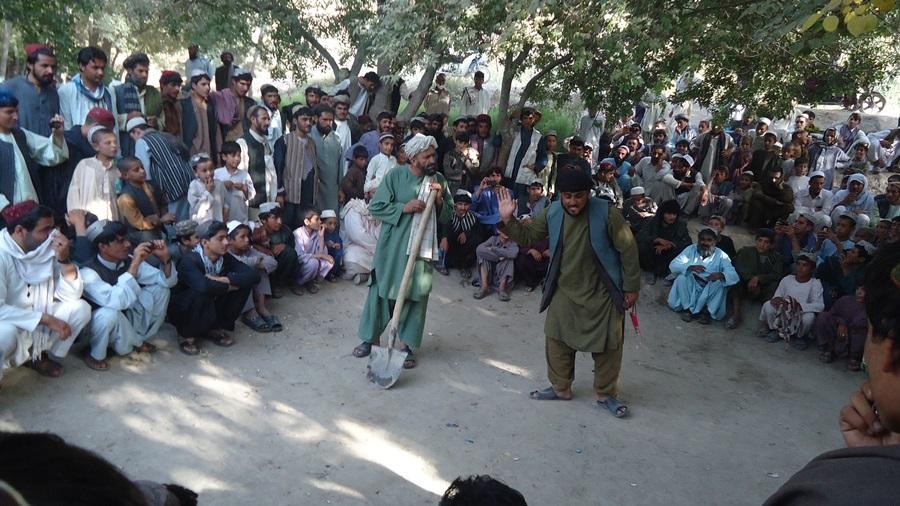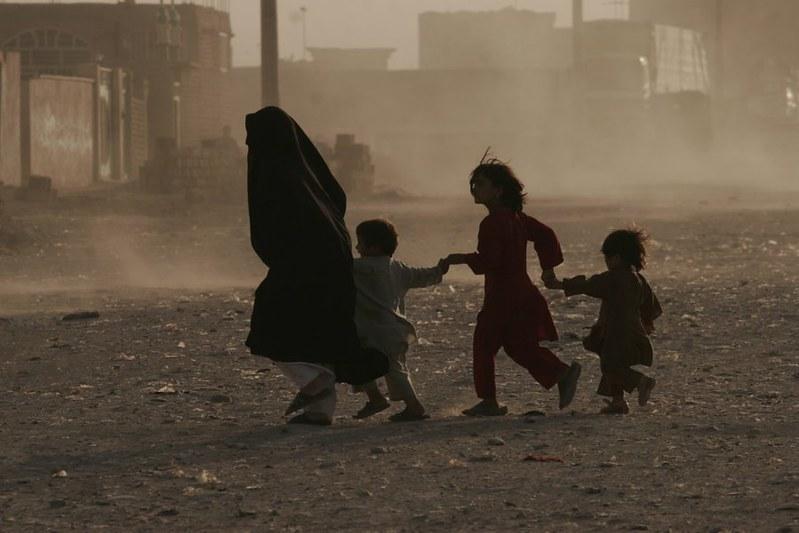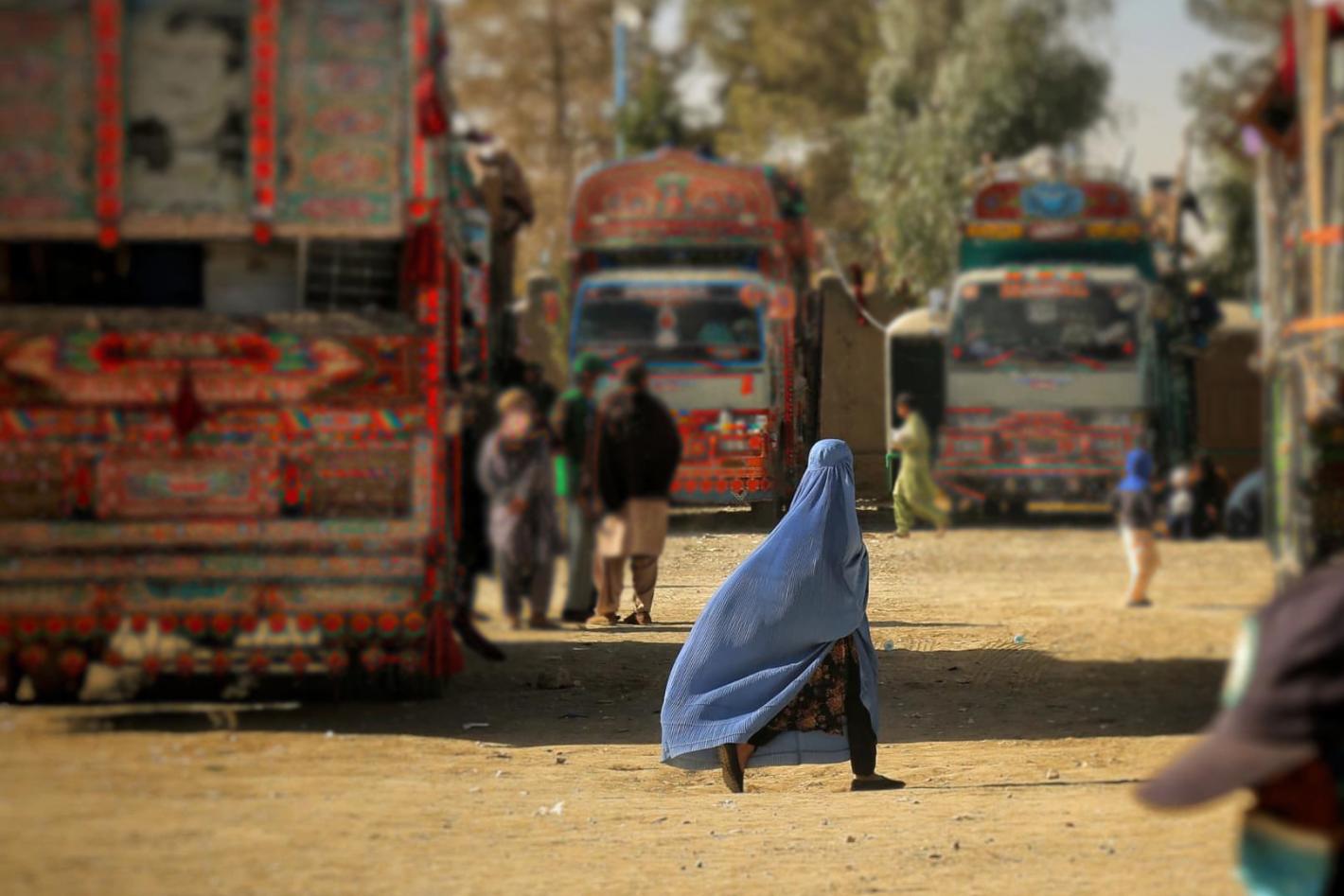KABUL - For many communities across Afghanistan, peace efforts are as much about their grassroots initiatives as they are about high-level negotiations. With support to peace efforts laying at the heart of UNAMA’s work, the Mission looks to back both top-level and community approaches.
Across the country, community events, including radio and television programmes, as well as theatre, have brought together thousands of Afghans to discuss, participate and share their views and ideas on how best to achieve local and national peace.
Several hundred UN-backed events spanning 34 provinces have been held. Afghans from many walks of life have participated directly and through radio, television, and social media, discussing the urgent need for peace and an inclusive peace process in which all Afghans, including women, youth, religious minorities, and people with disabilities, have equal opportunity to participate and share their views.
Earlier this year at one such event in Kandahar’s Panjwai district, participants including religious scholars made a case for why peace can no longer wait another day in Afghanistan. “Now is the time” they said to end the four-decades long war which has destroyed lives, stalled economic development, damaged infrastructure and made poverty endemic.
“For decades, we have been tormented by both sides,” said Haji Neik Mohammad, one of the participants and a religious scholar, “We want to live in peace and dignity.”
Participants in a series of radio broadcasts in the central region provinces of Maidan Wardak, Logar, Kapisa, Parwan and Panjshir, urged Afghans to participate in peace discussions in their communities so that their voices could be heard in the ongoing Peace Negotiations in Qatar.
UNAMA’s Outreach programme has, over recent years, been the largest single backer of community-based work across the country to foster dialogue and provide platforms for constructive discussions around peace.
“Women make up half the population of Afghanistan and are among the most affected by the conflict,” said a participant at an event in the southeastern province of Khost. “We want to be included in peace discussions, and we want our voices to be heard,” echoing the views of other Afghans who are hopeful that the peace deal will also uphold civil liberties and human rights for all citizens.
In addition to Outreach, UNAMA has run a series of events referred to as Local Peace Initiatives that look to directly help locals resolve their disputes and conflicts, many of which are long-standing and deeply destabilizing.
One such was a three-day mediation effort that helped resolve a 50-year feud over water resources between the Markikhil and Kadarkhil tribes in Nangarhar’s Shirzad district. The Jirga, attended by 60 participants – including representatives from the conflicting tribes – residents and mediators, concluded with a unanimously adopted resolution regulating water distribution rights. Facilitated by UNAMA in close coordination with the Nangarhar Conflict Resolution Commission, the Jirga was widely covered by local media.
Another local peace initiative took place in the eastern province of Kunar and helped two tribes reach an agreement on ending a 40-year conflict For almost four decades, the Salarzi and Mamund tribes had feuded over a piece of land in the Lahor Dack area of the Marawara District of Kunar. The conflict had been a source of tension and violence and affected the lives of hundreds of people by disrupting economic, social and other activities. “We are happy, and we are lucky that we succeeded in this Jirga,” commented Halim Gul, a community elder, after the unanimous adoption of the “no revenge” resolution.
The local peace initiatives have further provided a platform for many marginalized voices such as young people, women and rural communities to have their say on peace and other issues affecting them. One such initiative are the’ peace debates’, which offer mediation support to foster Afghan-led facilitation, mediation and reconciliation efforts at a provincial and district level.
In May, a ‘peace debate’ in Puli Khumri brought together youth representatives and local leaders from Baghlan province to discuss how the voices of Afghan youth on peace can best be heard both in their neighbourhood and on a national level. A programme on the event was broadcast by media outlets -Tanwir TV, Arezo, Sana, Payman and Adeeb radio stations.
Following its mandate laid out by the UN Security Council, UNAMA supports the Afghan people and government to achieve peace and stability. It backs conflict prevention and resolution, promoting inclusion and social cohesion.
“Every possible opportunity for peace must be seized,” said UN Envoy Deborah Lyons in a recent public message on Eid.
“Be assured, the UN remains fully focused on bringing Afghan parties together, so peace negotiations have the best possible chance to bring about a peaceful settlement.”






